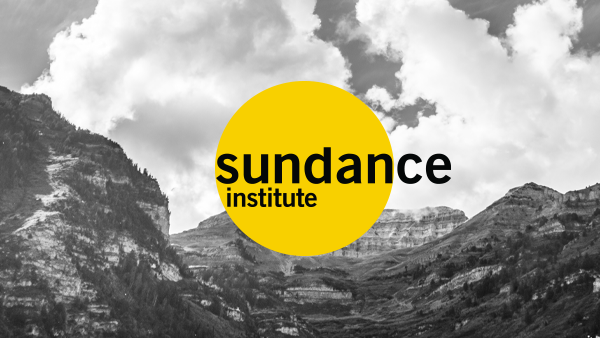Sundance Institute
Sundance.org is dispatching its writers to daily screenings and events to capture the 10 days of festivities during the Sundance Film Festival in Park City, Utah. Check back each morning for round-ups from the previous day’s events.
A Celebration of Music in Film
By Jeremy Kinser
The deafening crash you likely heard near Main Street last night was the sound of the roof being blown off the Kimball Art Center as a quintet of female vocalists (Darlene Love, Merry Clayton, Lisa Fischer, Tata Vega, and Judith Hill) showcased in the backup singing documentary Twenty Feet of Stardom took to the intimate stage to prove that they each deserve to be front and center.
Following an opening set by rock band The Fray, which included their hits “You Found Me,” and “How to Save a Life,” plus a stirring rendition of Bruce Springsteen’s “Streets of Philadelphia,” Peter Golub, director of the Sundance Institute Film Music Program, introduced Twenty Feet of Stardom filmmaker Morgan Neville to stage. The director still seemed in a state of disbelief as he announced to the standing room only crowd that he’d just sold international rights to his film (domestic rights were purchased earlier in the weekend).
“This movie is for everyone who has dreams that people have stepped on,” Tata Vega announced as she opened the set. “You have to have faith.” She then launched into a rousing rendition of “God Is Trying to Tell You Something,” that quickly had the entire crowd on its feet in rapturous applause.

Each of the women took turns performing in different styles. “It’s so good to be onstage with ladies you don’t feel threatened by,” Darlene Love told the capacity crowd after performing the ‘60s hit “Da Doo Ron Ron” with the other ladies singing backup on the chorus. “We all love and support each other.”
The room went silent as Fischer took center stage to deliver a sizzling slow jazz version of “I Loves You Porgy,” which she later followed with a heated rendition of the classic “Fever”
If there’s a true diva in the group, it’s undoubtedly Clayton. She told the audience that she’d originally intended to walk through the audience but it was too crowded so she’d just sing from the stage like the others. She then launched into a scorching signature take on Bob Dylan’s “The Times They Are A-Changin.’” A few minutes later she was joined onstage by Pearl Jam’s Mike McCready for a scorching solo version of “Gimme Shelter,” the Rolling Stones hit on which Clayton sang. Her vocal track is heard in the documentary and during the film’s premiere last Friday the audience burst into applause. Clayton’s live performance was greeted with a standing ovation.
During the encore, Clayton and Fischer combined their forces for a soulful version of “Lean On Me,” which they dedicated to Gil Friesen, the documentary’s producer who died in December.
Before Midnight
By Eric Hynes
Eighteen years after they presented the World Premiere of Before Sunrise on opening night of the 1995 Sundance Film Festival, Richard Linklater and Julie Delpy were again on stage in Park City, premiering the third film in the “Before” series to an Eccles Theater audience eager to find out what’s become of those rambling romantics, Jesse and Celine. Before Midnight takes place in southern Greece, nine years after the events of the second film in the series, Before Sunset, and many things have changed. Instead of giving too much away about the film, suffice it to say that the raffish American novelist Jesse and the high-strung French activist Celine are nine years older, and that their love story now has less to do with distance and missed opportunities than it does with issues of domesticity, compromise, and the resentments of partnership. Long past the version of themselves that treated their lives a little too lightly and theoretical, they’re in deep conflict over what to make of the swiftly advancing, and ever limited, future. “The star tonight is not Julie and me,” Ethan Hawke said via a letter that Linklater read during the Q&A. “It’s Father Time.”

Linklater said that as with the last film, it took about five years of not really thinking much about the series for the trio to “realize that these people were still alive.” The three of them collaborated on the film’s screenplay, and then went through an intense rehearsal and rewrite process that yielded performances that feel spontaneous and unscripted. “Ethan and I, we act it and see if it’s working, then rewrite and rewrite until it sounds natural,” Delpy said. She added that the process afforded her the chance to go much deeper into Celine than she’s able to for other film roles. “We’re creating the characters,” she said. “You get inside the characters by writing them.” After equally collaborating on script and character creation, Linklater said that they instinctively shifted to a more traditional director and actor dynamic once the shooting started.
Despite years of fielding questions about whether or not there would be another film in the series, they managed to shoot the entire film in Greece before word leaked of the production—something that Linklater said was crucial for maintaining the spirit of intimacy that is one of the defining aspects of the films. “Yet again we were doing it for ourselves,” Linklater said. So practiced are they at creating the ongoing saga of Jesse and Celine that “Now the three of us are like an old couple,” Delpy said. “A dysfunctional couple,” added Linklater. When asked what they’ve been able to bequeath to their characters about their own lives and personalities, Delpy had a quick response. “The capacity to argue forever,” she said.
Linsanity
By Nate von Zumwalt
For the avid basketball fan, Evan Jackson Leong’s feature documentary Linsanity was a welcome corrective to last year’s sensationalized news coverage of NBA player Jeremy Lin’s meteoric ascent to stardom. For everyone else, well, they were probably just contemplating how a far-fetched fairytale ended up in the Documentary Premieres program.
Linsanity–its title derived from the borderline maniacal fan and media Linterest (apologies) last winter–is far more substantial than a cozy retrospective on the improbable journey of Lin. Instead, it offers an effectively anachronistic play-by-play of the young point guard’s unwavering persistence and insistence that he become a preeminent player in the NBA, and the first Asian-American star in the world’s premier basketball league.
Perhaps the appeal of Jeremy Lin—his endearing ethos permeates the film—is the universality of his story despite his seeming omnipresence. He is Asian-American, a devout Christian, painfully unassuming, and a star in arguably the world’s most beloved sports league. First-time director Leong blends these components into a fascinating tapestry that retraces Lin’s beginnings as a talented but neglected basketball player in Palo Alto, Calif., to his unprecedented stint with the New York Knicks during which he tallied more points in his first five starts than any player in NBA history.

As Leong disclosed after the screening, he was not as prescient as he may have appeared. “As we kept shooting, we didn’t have an ending. February of last year he [Lin] gave us an ending.”
Leong reached out to Lin while he was still playing basketball at Harvard, explaining that in his own eyes the story was already one of great accomplishment. It was there that Leong began to build a kinship with Lin, as well as a bona fide trust that would later prove integral to capturing the final act of his film.
“As a filmmaker when you’re doing documentaries, you want to build trust in your subjects.” It was that trust that enabled Leong to capture some of the most intimate footage of Jeremy Lin and his family, from his Christmas Day release by the Houston Rockets to his refusal to move out of his brother’s New York apartment even after signing a guaranteed contract.
There is one other thematic strand that pervades Linsanity, which is the not-so-subtle racism that accompanied Lin on his journey. Leong manages to tactfully broach that precarious issue with humor, composure, and nary an ounce of anger.
“I think we all know racism still exists in America. With this project, with what happened to Jeremy, it just brings a lot of light to what people really think. We’re more happy for the opportunity that Jeremy had and what he did during that time.”
Milkshake and The Spectacular Now
By Eric Hynes
For two films that screened at the Festival on Sunday, two coming-of-age stories about overconfident high school boys proved to be both universally relatable and stealthily personal. Though Milkshake and The Spectacular Now couldn’t be more different in tone and ambition—the former is a stylized satire of a mid-1990’s white boy’s obsession with gangsta culture, while the latter is a more naturalistic drama a young man’s struggles with abandonment, substance abuse, and romantic connection—each film’s director confessed an affinity with their protagonists during after-screening Q&A’s. In Milkshake, bench-warming Varsity basketball player Jolie Jolson(Tyler Ross)—a descendent of blackface legend Al Jolson—lionizes behavior and morality he gleans from Tupac Shakur lyrics, and aspires to be more like his black teammates—or as he perceives them to be. “He was based on a lot of people that I knew,” director David Andalman said at the film’s world premiere at the Library Theater, before grinning and adding. “It was also very personal.” Actress Shareeka Epps, who plays Jolie’s pregnant girlfriend, recounted how the off-the-wall, gleefully profane and anti-PC script made more sense once she met Andalman. “It was like—somebody actually wrote this?” she said, eliciting hearty laughter from the audience. “Then I met him and was like, this is the guy.”

The connection is less direct in The Spectacular Now, which is an adaptation of Tim Tharp’s novel of the same name. But according to director James Ponsoldt, one of the things that appealed to him about the story was how much the main character of Sutter (Miles Teller), who’s simultaneously the cocky life of the party and a sad and rudderless boy, hit very close to home. “The thing that felt surreal is that the story is the story of who I was in high school,” he said after the film’s sophomore screening at Redstone Cinemas. “But I never would have had the courage to tell it.” Taking the identification further, Ponsoldt decided to shoot the film in his hometown of Athens, Georgia, in streets where he played as a kid. Novelist Tharp, who also took questions, said that in addition to retaining a good deal of its naturalistic dialogue, the film stuck to the spirit of the novel. “It gets to the sad, sweet, broken heart of the world that we need to feel sanctified every once in a while,” he said.
Citizen Koch
By Jeremy Kinser
“In a way there’s no greater story in America right now than the question of what’s happening to our democracy in the face of runaway capitalism, in the face of unregulated corporate giving to campaign,” Caroline Libersco, Senior Programmer for the Sundance Film Festival, stated during her introduction to the world premiere of Citizen Koch at the Temple Theatre. “What is the responsibility of people on the ground at their kitchen tables to protect democracy?”

The latest film from directing duo Carl Deal and Tia Lessin, the team behind 2008’s Academy Award-nominated documentary Trouble the Water, tries to answer that question. Deal and Lessin examine billionaire industrialist brothers Charles and David Koch, who support Tea Party candidates and have spent hundreds of millions of dollars in an attempt to influence American politics. Their doc primarily focuses on the Koch-supported Wisconsin governor Scott Walker and the recall election pushed by Walker’s opponents after he moves to strip away their union rights.
Citizen Koch is an effective, if straightforward, piece of filmmaking and, as one audience member noted, it marks a decided departure from their 2008 film, which won them the Sundance Grand Jury Prize: Documentary.
Lessin explained that following the 2008 election the two became transfixed by what she described as “vitriol being spewed by right wing pundits and conservative politicians.” Lessin added that after noticing their TiVo was suddenly filled with hours and hours of Glenn Beck, she informed Deal they had found the subject for their next film. “We came to discover what we think is a concerted effort to buy our democracy.” The two went to Palm Springs, Calif. in an attempt to film the Koch’s annual retreat in the desert city, but they were kicked out. Deal’s brother, a Wisconsin state employee, alerted the couple to what was happening in the streets there so they pair immediately traveled there to begin making the new film.




